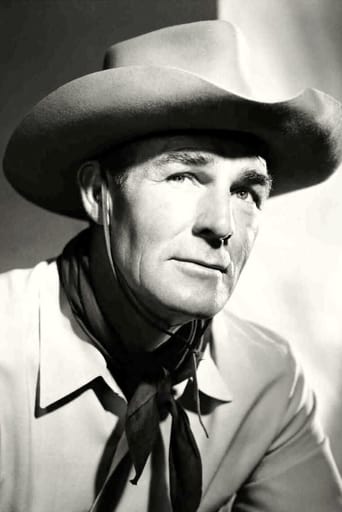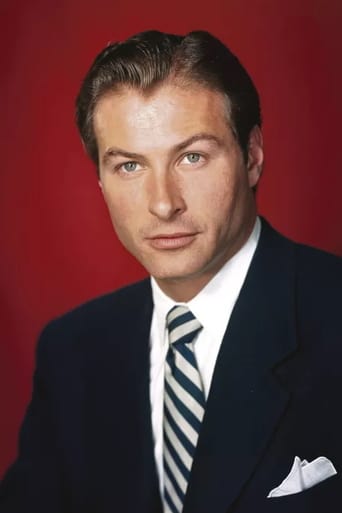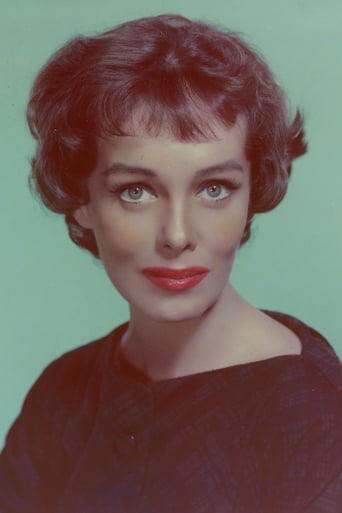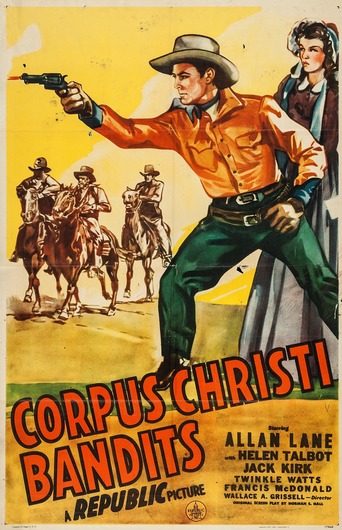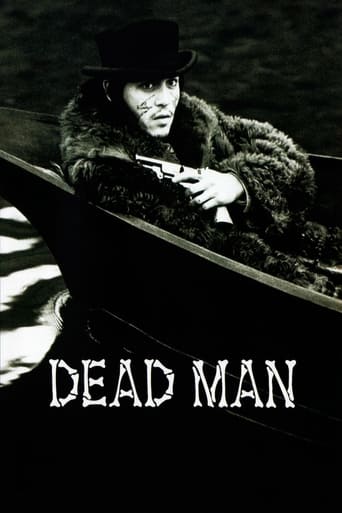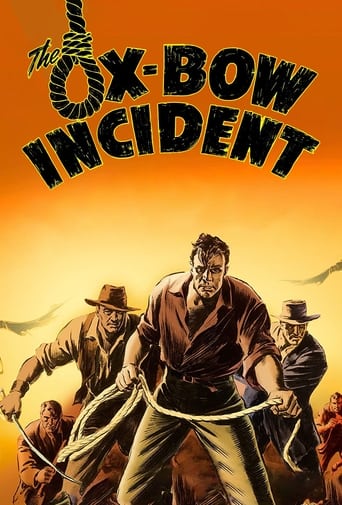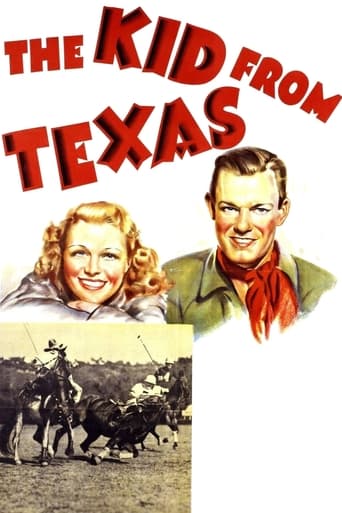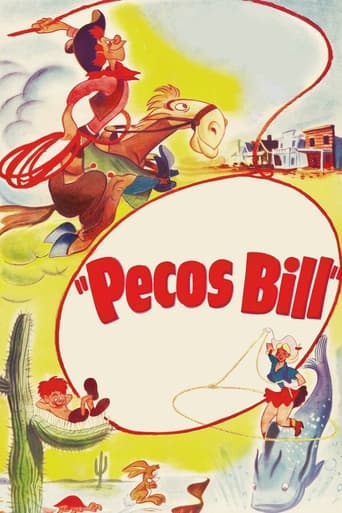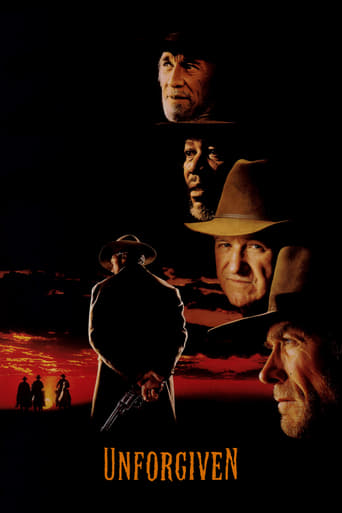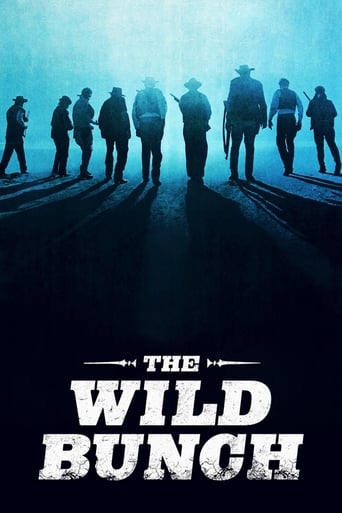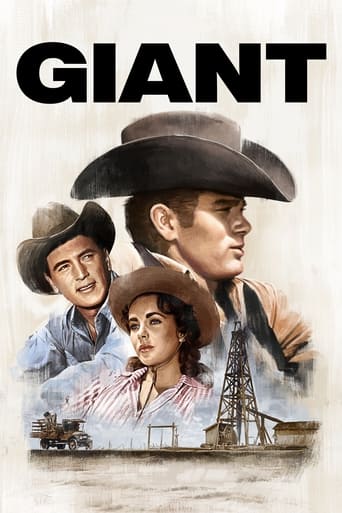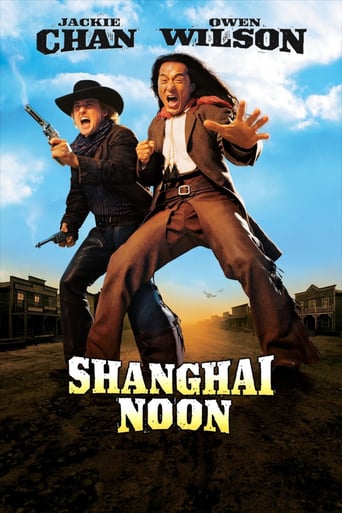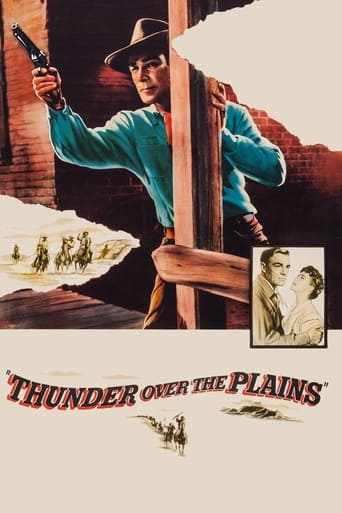
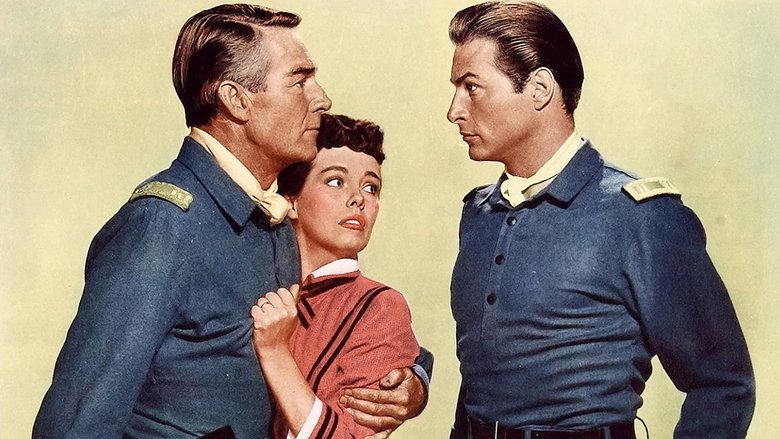
Thunder Over the Plains (1953)
Set in 1869, after the Civil War, Texas had not yet been readmitted to the Union and carpetbaggers, hiding behind the legal protection of the Union Army of occupation, had taken over the state. Federal Captain Porter, a Texan, has to carry out orders against his own people. He brings in the rebel leader Ben Westman whom he knows is innocent of a murder that he is accused of. In trying to prove his innocence, Porter himself becomes a wanted man.
Watch Trailer
Cast


Similar titles
Reviews
Masterful Cinema
A film with more than the usual spoiler issues. Talking about it in any detail feels akin to handing you a gift-wrapped present and saying, "I hope you like it -- It's a thriller about a diabolical secret experiment."
The thing I enjoyed most about the film is the fact that it doesn't shy away from being a super-sized-cliche;
Exactly the movie you think it is, but not the movie you want it to be.
Complex western that manages pretty well to stay afloat. You may need a scorecard since the screenplay involves four different factions bouncing off one another. Scott displays his usual iron-jawed determination as the captain torn between loyalty to his native Texas and the Union cavalry. The bad guys, as usual in these post-Civil War oaters, are the greedy carpetbaggers, headed up by that excellent actor Hugh Sanders. And who can overlook perennial fall guy Elisha Cook doing his usual fierce rabbit bit.The rivalry between the two captains, Scott and Barker, is an interesting feature, especially when it extends to Scott's wife (Kirk). That scene where the home-sick wife is captivated by the handsome Barker is both well played and unusual for a western. Note too how Scott is compelled by the byplay to fade into the background, another unusual feature for a western hero.Though filmed just west of LA, the rolling scenery makes a good Technicolor backdrop to the action. Much credit for making the elements work should go to director de Toth who was skilled at handling conflict as shown in his masterwork, Ramrod (1947). The redoubtable Sam Peckinpah also selected de Toth to direct many episodes of his groundbreaking TV series The Westerner (1960). On the whole, it's a complicated story of personal and political conflict but still delivers the goods for fans of westerns.
Thunder Over The Plains starts with the same premise as John Wayne's Red River and Randolph Scott's earlier film, The Texans. That is the corrupt rule of carpetbaggers post the Civil War. But there are no large herds of cattle to be driven north for profit to escape the burdensome taxes laid down by the occupying carpetbagger civil servants and the army to back them up. Randolph Scott is a Union army captain, but also a Texan and he sees both sides. Henry Hull is his put upon commanding officer and Charles McGraw plays a leader of a local gang who have risen up like Robin Hood among the oppressed. These guys aren't Ku Klux Klan nightriders by any means though.Our villains are Hugh Sanders and Elisha Cook, Jr. a pair of scurvy lowlifes if there ever were. They've got quite the little self perpetuating racket. The more they extort, the more McGraw raids, the more Sanders and Cook cry that the army has to stay in Texas. Just about anything is blamed on McGraw and his men.There's also a domestic crisis of sorts with newly arrived captain Lex Barker, an arrogant sort who was on duty in Washington and would like to get back there. Barker's bored and he makes a play for Phyllis Kirk who is married to Randolph Scott. Since they don't like each other from the beginning that only increases the problem.Andre DeToth who did several westerns including a few with Randolph Scott brought home a good one here. With themes like an attempt at adultery here, this was not a western for the Saturday matinée kiddie trade. DeToth's best in my opinion is one called Ramrod with Joel McCrea and his then wife Veronica Lake, but this one is pretty good too.DeToth also learned from the best and the final shootout scene with Scott against four men bears no small resemblance to High Noon, released a year earlier.Definitely one of Randolph Scott's best westerns of the Fifties.
I love Randolph Scott Westerns as they usually manage to rise above the many, many mediocre and derivative films in the genre. Throughout the 1930s-60s, Hollywood churned out a bazillion of cowboy films and after a while, they almost all look the same to me--with the same clichés and myths about the West and the same general story lines. Yet, due to his excellent acting and believable persona, Scott was able to make a long string of these films and they almost always managed to be a bit better--and some even went on to become classics.Sadly, THUNDER OVER THE PLAINS is no classic. Part of it has to be because the story line is so familiar and unexciting. I've seen a ton of films about the Reconstruction era and this one isn't much to speak of--especially since it is so historically inaccurate. I am an American History teacher and understand that the Reconstruction era is highly misunderstood. Starting with such films as BIRTH OF A NATION, several decades of Hollywood films followed a fictitious Southern revisionist version of history. In this revisionist world, the Southerners were all gentlemen (forget that many owned slaves) and the dreaded "dang Yankees" in the form of "Carpetbaggers" flooded the South to take advantage of everyone. In D.W. Griffith's BIRTH OF A NATION, these evil swine were only eventually put in their place by the brave men of the cloth. No, not the clergy, but the Ku Klux Klan--a hate group! While there is thankfully no Klan in this film to save the day, there certainly are the evil carpetbaggers and it's up to good Union officer Scott to save the day for the poor Southerners. Folks, this didn't happen--never did.Even if the story weren't a lot of historical hogwash, the film is tepid and ordinary throughout. The characters seem too often "black or white" and Lex Barker seemed more like a psycho than an officer (and probably would have been hanged for his actions). Please, give me a film without the one-dimensional characters AND Randolph Scott, such as RIDE THE HIGH COUNTRY, RIDE LONESOME or THE TALL T--not this mediocre and tepid film.
Randy is in a complicated situation. He is a Captain(Porter) in the Union occupational army in Reconstruction Texas. But, he is a Texan himself, although pro-Union during the war. Thus, he finds his duty to uphold what amounts to swindling of the Texans by carpetbaggers often distasteful. Along with newly arrived Cpt. Hodges, he is charged with rounding up the Westman gang of Texans, who have held up cotton wagon trains owned by the carpetbaggers Standish and Balfour, and are accused of the murder of an informant. Unfortunately, Randy and Cpt. Hodges are sometimes at odds in strategy in capturing the gang. Later, they come to blows over Hodges' romantic interest in Randy's wife, played by Phyllis Kirk. She is unhappy in their present situation, being ostracized by most of the Texans.Balfour knifes the informant on the Westman gang in the back to regain the reward money just given him. Westman is blamed for this murder. The body was pinned with a note indicating this, but Randy doesn't believe it. Standish witnessed the murder, but is afraid to tell about it. Westman, when cornered, gives himself up to Randy on the promise that he will get a fair trial for the murder. But, orders are soon received by the army commander to hang Westman without a trial. Standish is kidnapped by the Westman gang and held for exchange of Westman. Randy tries to find a way to prove Westman is innocent of the murder and agrees to go to the gang's hideout as a civilian to talk to Standish. But, just as Standish is about to spill the beans on the real murderer, he is accidentally shot by Cpt. Hodges, who is trying to shoot Randy, as an army deserter. See the film to find out how Randy brings a happy conclusion to this mess.This is pretty much a hard-driving drama, with few light moments, other than the stripping of the hated carpetbaggers by Westman's gang. Randy lacks the light-hearted sidekicks, budding romances and nightspot scenes that provided a better balance of duty and relaxation in the film "The Man Behind the Gun", released the same year. Nonetheless, it is a good historically plausible story and provides enough complexities to maintain the viewer's interest.Since this film was made, our idea of the pervasiveness of carpetbagger corruption and opportunism has undergone a revision, recognizing that these have been overemphasized. Many carpetbaggers were ex-union soldiers, who remained in the South after discharge. A glaring anomaly I noticed was the lack of any African Americans or Mexicans in this community. Possible, but unexpected. I must say that Lex Barker, as Captain Hodges, showed a striking physical resemblance to a middle-aged John Travolta. For those used to seeing Fess Parker as Davy Crocket or Daniel Boone, it will be a novelty seeing him as a murdered member of the outlaw gang.


